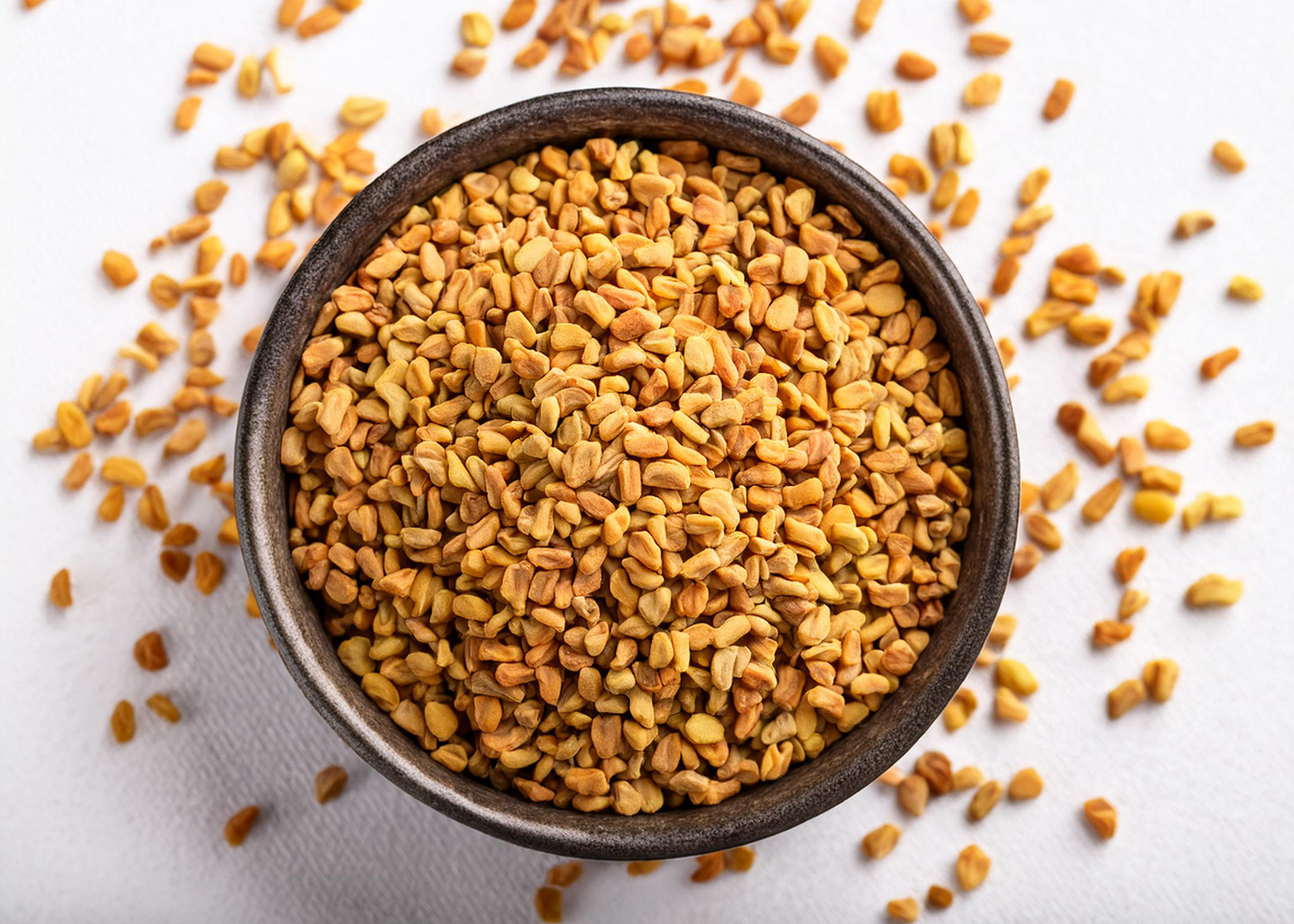Botanical Name: Trigonella foenum-graecum
Fenugreek seeds are small, golden-brown seeds that come from the fenugreek plant, widely used in Indian, Middle Eastern, and North African cuisines. Known for their slightly bitter, nutty flavor, fenugreek seeds are a versatile spice used in a variety of dishes, both savory and sweet. The seeds are prized not only for their unique flavor but also for their numerous health benefits, making them a popular ingredient in both cooking and traditional medicine.
Fenugreek seeds are small, hard, and angular, usually yellowish-brown in color. Their flavor is distinctly bitter and nutty, with a slightly sweet, maple-like aftertaste, which intensifies when the seeds are lightly roasted or fried. The seeds have a pungent aroma, often compared to that of burnt sugar or maple syrup. When used in moderation, fenugreek seeds can add a subtle, complex flavor to dishes, but when overused, their bitterness can dominate the dish.
Fenugreek seeds are a staple in Indian cuisine, particularly in spice blends like garam masala, panch phoron (a Bengali five-spice mix), and sambar powder. The seeds are commonly used in curries, lentil dishes, and pickles, where their bitterness balances the richness and spiciness of other ingredients.
In cooking, fenugreek seeds are typically dry roasted or fried in oil to mellow their bitterness and release their nutty, sweet flavors. They are often used as a base for tempering dishes, providing depth and complexity to sauces and gravies. Fenugreek seeds are also an important ingredient in Middle Eastern and North African cuisine, where they are used to season stews, breads, and spice pastes like harissa.
Aside from their savory uses, fenugreek seeds are used in syrups and desserts to add a subtle maple-like flavor. In some cultures, fenugreek seeds are soaked in water overnight and consumed in the morning to promote digestion and general wellness.

